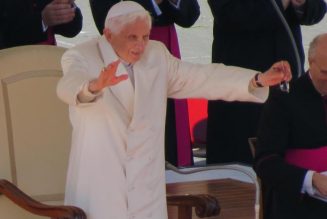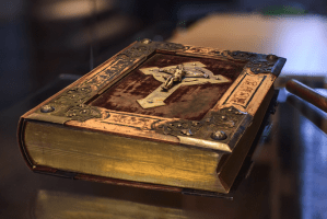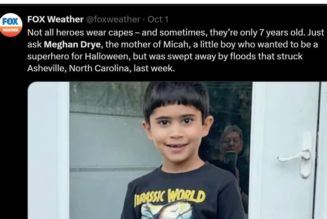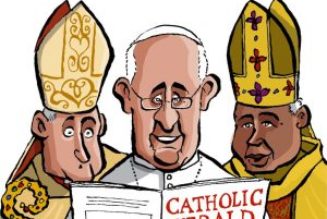 |
The pandemic has suddenly thrown our affluent and seemingly secure and safe lives into a tailspin. In fact, the security and certainty was always an illusion, and in East Coker T.S. Eliot ponders life’s shifting uncertainty:
And every moment is a new and shocking
Valuation of all we have been. We are only undeceived
Of that which, deceiving, could no longer harm.
In the middle, not only in the middle of the way
But all the way, in a dark wood, in a bramble,
On the edge of a grimpen, where is no secure foothold,
And menaced by monsters, fancy lights,
Risking enchantment. Do not let me hear
Of the wisdom of old men, but rather of their folly,
Their fear of fear and frenzy, their fear of possession,
Of belonging to another, or to others, or to God.
The line that always catches my imagination is, “On the edge of a grimpen, where there is no secure foothold.” Eliot liked word games, and the very strangeness of the word “grimpen” served his purpose. The word is not in the dictionary. We may not know what a grimpen is, but we suspect it is the endless bog, the slough of despond, the windswept moor with hidden pits of tar, or the jungle swamp ambushed with quicksand.
The lexicographic detective will track the word down to Conan Doyle’s The Hound of the Baskervilles and learn about the ominous sounding “Grimpen Mire,” a hamlet located on Dartmoor in Devon, England. Near the town of Coombe Tracey, Grimpen Mire lies fourteen miles from the watchtowers and granite walls of the infamous Dartmoor Prison.
“On the edge of a grimpen where there is no secure foothold” might well describe the state of mind of our society in the grip of pandemic uncertainty and fear. The predictions and pronouncements from the experts and authorities have been contradictory from the start, and the mixed messages have fed the panic and worsened as the weeks have rolled on.
“Millions will die from this disease!” “It will be no worse than the seasonal flu.”
“We must build makeshift hospitals to treat the tens of thousands who will fall ill!” “We are closing the hospitals because they were empty.”
“The health care systems will be overloaded and collapse!” “Doctors and nurses are being furloughed because the hospitals are empty.”
“Face masks are ineffective against this kind of disease.” “Everyone must wear a face mask!”
“The hot humid weather will kill this thing.” “It will only lie dormant. The second wave will be worse.”
“They are exaggerating the number of people with the disease.” “They are underestimating the number because so many deaths are hidden.”
So we stand on the edge of a grimpen, where there is no secure foothold. If the official news reports are contradictory, when the gossip of social media is added to the mix, the grimpen becomes a veritable swamp of quicksand. Opinions and arguments swirl and sink, tempers rage and friendships are frayed. Then conspiracy theories form in the minds of frightened souls and circulate like perfidious beasts that creep across the stormy moor.
“We are menaced by monsters, fancy lights, risking enchantment.”
It occurs to me that the uncertainty surrounding the pandemic is a symbol of the philosophical uncertainty of our culture. Our society is worm-eaten with relativism, and the end result of believing there is no such thing as truth is the same uncertainty evidenced by the coronavirus crisis and experienced by all.
Nobody seems to have the answer. Experts disagree and everybody latches on to the latest news item or social media article that confirms their own opinion on the matter. Their own ideas are formed by a mixture of their personality types, their prejudices and political preferences. What facts there are remain open to opposite interpretations: the number of deaths is far lower than predicted. Does that prove the lockdown was effective or that the threat was overblown from the start?
The worry is that “the dictatorship of relativism” becomes more than a metaphor. When uncertainty reigns—whether it is the uncertainty surrounding a pandemic or the deeper uncertainty of a society lost in the grimpen of relativism—fear soon follows. We cannot live forever with the terror of not knowing, so we will be tempted to sacrifice our freedoms for an answer. In the face of uncertainty, we will not only search for answers, but also long for an authority who will supply the answers.
Without an authority based on revealed Truth, force must become the authority. Might makes right. “I don’t care what you believe. This is what you will do because I told you to, and I have a police force and you don’t.” Ironically, the citizens of a free society, wallowing in self-indulgent relativism, will find themselves enchained by the very totalitarian regimes they always abhorred—and the poor souls will submit to their chains willingly. “Thus the whirligig of time brings in his revenges.”
What is the answer? In the swamp of pandemic uncertainty, one must strive to focus on facts, eschew fear, and trust in common sense. The same antidote applies to the shifting sands of relativism. Facts, human reason, common sense and confidence in the face of fear provide a way forward. Added to these human virtues is the indispensable gift of faith. “God has not given us the Spirit of fear, but of power, love and a sound mind.” (2 Timothy 1:7) The person of faith is not swept about by every wind of doctrine, but is gifted with a clear vision, a will empowered by grace, compassion driven by charity and a “sound mind”—one established in reason and common sense.
These qualities arise naturally, not from theory alone, but also from the authentic practice of the Faith. It is there, on the edge of the grimpen, that we find a solid rock and the secure foothold, and from such a faith in the face of uncertainty we might just learn that most difficult wisdom of all—one which Eliot commends in the final lines of the passage from East Coker:
The only wisdom we can hope to acquire
Is the wisdom of humility: humility is endless.

Father Longenecker’s latest
book Immortal Combat is
available now from Sophia
Institute Press.
Image: A chapel and cemetery in East Coker.










